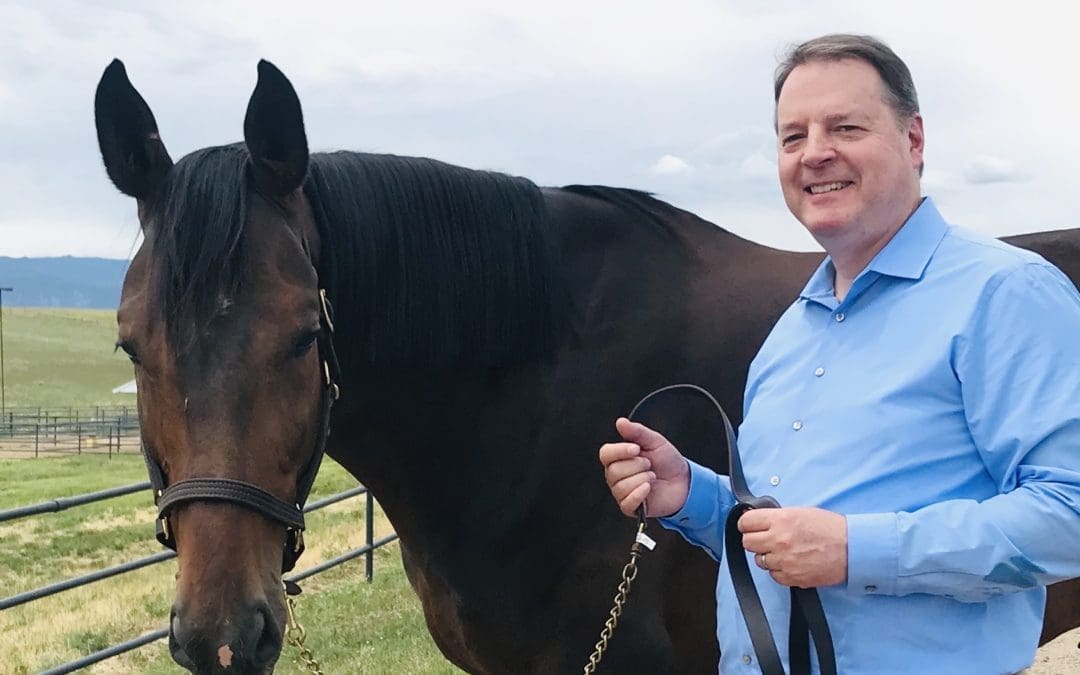
Interview with Elizabeth “Betsy” Charles, DVM
This interview is with:
Elizabeth “Betsy” Charles DVM: Executive Director of Veterinary Leadership Institute, (VLI) a not- for- profit organization.
Author’s Note: My hope is that when reading these interviews, they give you a brief, fun break from your daily routine and perhaps stimulate you to engage with others in new ways. The eleven questions are typical of how I get to know my clients during our first meeting.
1. Where are you and what do you notice as you look around the space you are in right now? We are at the Denver Convention Center and it’s pretty big and empty other than a couple of people sitting near us.
2. If you weren’t working what would be your ideal (real or imagined) most peaceful place to be? Anywhere in the mountains. Like a little cabin with a river or steam close by. I like it when its snowy. I live in California and I grew up in the Pacific Northwest and I like the sun. I used to go up to Snowbird, a ski resort in Utah every year for about 12 years with my late husband. We took that whole week, without cellphones, to reflect on the year and the year to come. So, there is a deep spiritual connection to the mountains.
3. How did three people influence you, personally or professionally, throughout your life? Definitely my late husband, Drake, who was by far the most influential person in my life for so many reasons. A steadfast, great conversationalist, super creative, super interested in deeper things of the world. He had ALS and he had deep connection with the Holy. I think he was a genius. Kathy Ruby was also a great influence, teaching me how to reflect and teaching me how to think about deep things. She always looked out for me and encouraged me in my professional development. One of things I struggle with is self-worth and I have that from my Dad. Messages of you won’t amount to anything, that you don’t try, you’ve got to be perfect and you’re not. Both Drake and Kathy helped me find my voice and silence those lies. Kathy did that significantly in my career.
4. Who currently inspires you? Kanita Rogers (SP?), a board member, the Associate Dean at Texas A&M College of Veterinary Medicine. She is one of the most positive people I have ever been around. I love her approach to people and positivity and how I feel when I’m around her. She and I are two peas in a pod.
5. What do you consider your greatest attribute? Authenticity. What you see is what you get. I don’t hide. I just don’t have time for that. That is a core value for me. I did it for a lot of years, hiding, and it’s just exhausting. I don’t have the energy to not be who I am.
6. What do you think you might need to work on (one thing)? I feel I have been working on so much this last year. I need to not be working now. I think sometimes I can over process. I tend to fill in what I don’t know with assumptions. I want to just be able to sit with the unknown. I write, I talk and sometimes I think maybe I should watch a stupid movie, maybe a comedy or go to a basketball game.
7. What do you think has been your greatest achievement? Walking through the valley of the shadow of death with my husband and doing it well. He was very well taken care of, loved and supported. I did that all the way through until he took his last breath. It was heart wrenching, awful, and glorious always at the same time. I’ve been a good friend, good sister, I am a good radiologist and good fundraiser for the VLI. None of that even comes close to ushering Drake into the presence of his king, it was an absolute honor. The testament of a life well lived is how you navigate the tension between the terrible and the good. That is life.
8. What do you tend to say most often? My students would say I use the word Awesome. Awesome, Awesome, Awesome. I say most often Tell me more.
9. What do you value most in others? Honesty. I bristle if I sense anything fake. I have a strong world view as my faith is important to me. It is not my responsibly to change you. I think there is a lot of fear of the unknown in the Christian community. I want to be connected to other people. I like people and God created all of them.
10. What types of things do you like to read? I read all the time. I love to read personal development and fiction. I listen to books and I love the physical feel of books. I have a huge library.
11. What curious or unusual thing might others be surprised to know about you? I was a competitive speed skater when I was a child. If I wasn’t a veterinarian I wish I was a singer.
© Trudi Howley M.S., SEP, LPCC, CPC is a Somatic Psychotherapist and Certified Professional Coach, specializing in trauma healing.




